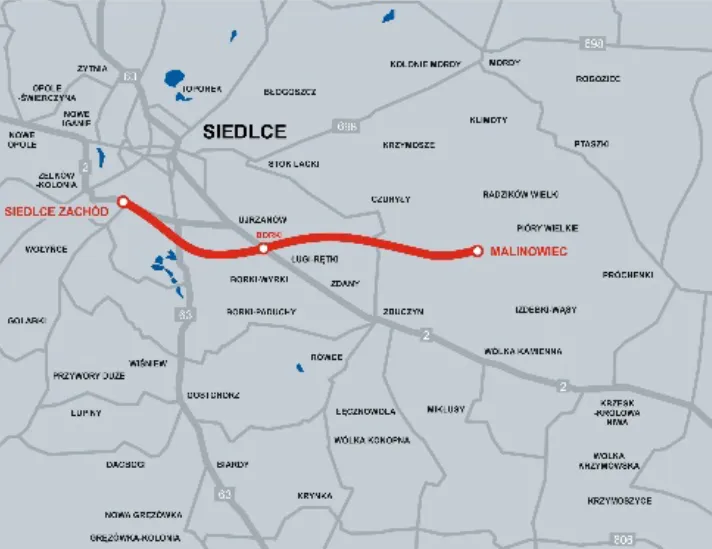The long tale of woe concerning Poland's troubled A2 highway project looks set to continue with the latest developments in the case.
February 28, 2012
Read time: 3 mins
The long tale of woe concerning Poland's troubled A2 highway project looks set to continue with the latest developments in the case.
The Chinese contractor China Overseas Engineering Group Co (2487 COVEC) is appealing against a decision made by the Polish national road authority 1361 GDDKiA.
The Polish authorities cancelled the contract that Covec had previously been awarded to build a section of the A2 highway between Warsaw and Lodz.
The highway is an important one as it will link the Polish and German capitals Warsaw and Berlin respectively. Covec's deal was a landmark decision, the first time a Chinese firm had won a major construction contract in Europe. The firm won the tender process for the 50km highway stretch with a low bid that caused some controversy as other bidders complained about being undercut. The problems started soon after Covec commenced work, with materials prices spiralling and causing major problems for the Chinese firms. As delays with the work mounted and complaints from local sub-contractors over non-payment by the main contractor grew, Covec was forced to withdraw from the project in May. Covec has now complained that it has been unfairly treated by the Polish authorities and at present, the case looks likely to end up in the Polish courts.
Covec has requested details of the contract between GDDKiA and Eurovia to be revealed.3281 Eurovia was awarded the contract by GDDKiA as the company had previously been a bidder in the original tender process and as the Polish authorities want to speed up construction and ensure the road is ready for the upcoming 2012 football fixture. But Covec has also claimed that the Polish authorities have not met with necessary requirements of putting out contracts to tender in its award of the deal to Eurovia. At the same time, some of the sub-contractors and sub-suppliers claiming that Covec failed to pay them sufficiently for their services are planning to take action. Some have said that they will block a number of entrances to the various construction sites. Although Eurovia points out that it is not responsible for any non-payment from Covec, the firms have said that the Polish authorities will have to pay and are blocking the work to force this move. At this stage only the sub-contractors that were listed by Covec as being involved in the project will receive payment from GDDKiA. However it appears that there may be some sub-contractors that have carried out work that have not been listed officially by Covec and it is these firms in particular that are concerned that they will not be paid. The protesting sub-contractors have said they will stage road blocks at the construction site and on connecting roads for as long as necessary, until they receive the payments they say they are due. The project has evidently turned into a legal morass for the Polish authorities, the contractors, sub-contractors and all other parties concerned.
The Chinese contractor China Overseas Engineering Group Co (
The Polish authorities cancelled the contract that Covec had previously been awarded to build a section of the A2 highway between Warsaw and Lodz.
The highway is an important one as it will link the Polish and German capitals Warsaw and Berlin respectively. Covec's deal was a landmark decision, the first time a Chinese firm had won a major construction contract in Europe. The firm won the tender process for the 50km highway stretch with a low bid that caused some controversy as other bidders complained about being undercut. The problems started soon after Covec commenced work, with materials prices spiralling and causing major problems for the Chinese firms. As delays with the work mounted and complaints from local sub-contractors over non-payment by the main contractor grew, Covec was forced to withdraw from the project in May. Covec has now complained that it has been unfairly treated by the Polish authorities and at present, the case looks likely to end up in the Polish courts.
Covec has requested details of the contract between GDDKiA and Eurovia to be revealed.







